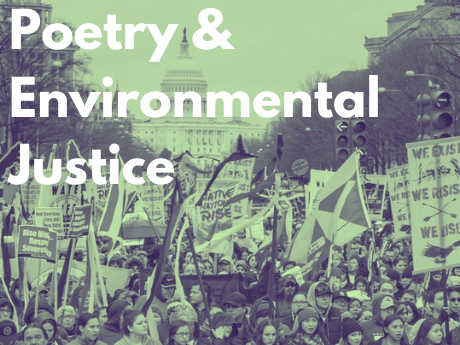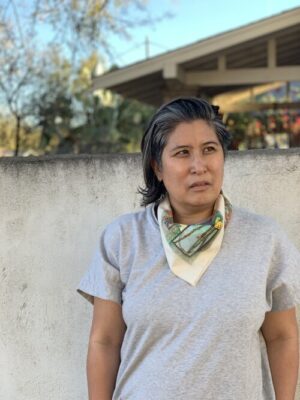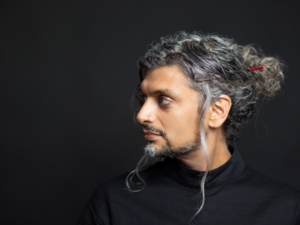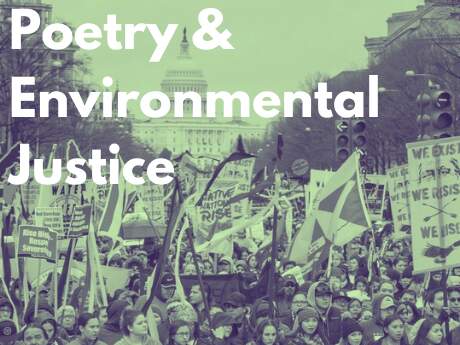Poetry & Environmental Justice
Kazim Ali on Kimberly Alidio’s poem “: rock // neverended :”

: rock // neverended :
everytiny
living
material
turn
soil
draw
root
build
leafstem
flowerfruit
eat
animal
bloodiron
teeth
bone
coral
Kimberly Alidio’s poem “: rock // neverended :” enacts a current condition in surviving on a damaged planet: work with (through? against? alongside?) the “what-is-now,” a present tense-ness ancient eras in the making and yet post-industrially accelerated to breaking points of various kinds. Not a breaking point for the creature/planet itself but a breaking point for us, we who write and read.
The poem, according to Alidio “arranges language from” Lorine Niedecker’s journal “Lake Superior Country ’66,” a journal seen by Alidio as part of Wave Books’ publication of the volume Lake Superior: Lorine Niedecker’s Poem and Journal, Along with Other Sources, Documents and Readings, which puts Niedecker’s in historical, personal, and geological contexts.
A poet here descends into weave or weaves herself, weaving being an acceptable metaphor though rock, mineral, tree and water work by other pressures and in different chronomodalities. “The journey of the rock is never ended,” opens LN in her prose journal which KA (by initial I have an allegiance) brackets with colons (semantically implying that something came before and that something is next/typographically creating the sense of strata or sediment) and separates by space physically on a page.
Is it an “arrangement” (furniture in a room? music from page to performance) or a “rangement” (mountain range, range of options, range what my mother called her stove): words come together without space, release themselves into space from a knit prose sentence, and the column that follows deploys verbs and nouns in alter/ation (alter/nation?) or altar ration. Al(i)tara(d)io radiation.
Rather than a musing or an explanation, Alidio offers a practice or divination. Teeth bones coral. The animal inside the poem (or human) (or planet as one animal itself in cells and cells) that cannot be corralled. Happens as it happens that the poem is an arrangement at an opening of a book (:once teeth bones coral:) that itself (hard to parenthetically type the name of the book, the technology I use (which rather than allow a thought to interrupt another though, allow a flow, which is the way both rock and water work in the geological and hydrological world: flow) wants to change the graphic close quotation (which doesn’t actually belong at the close of a sentence: there is always meant to be something following a colon) and close parenthesis into a smiling face emoji. Try it, you’ll see) wishes a reader to follow the flow, fall and collab and know.




